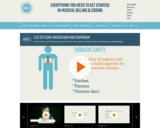
In this video, we'll help you prepare for the CPC exam by looking at the mediastinum and diaphragm.
- Subject:
- Allied health personnel
- CTE
- Health and Medical Science
- Medical informatics
- Date Added:
- 01/27/2014
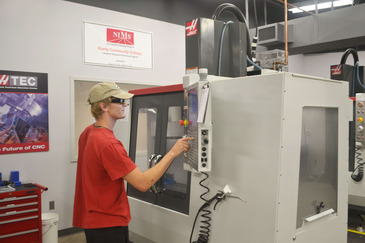

In this video, we'll help you prepare for the CPC exam by looking at the mediastinum and diaphragm.
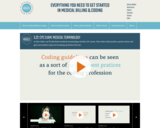
In this video, we'll talk about medical terminology and the CPC exam. This video will provide a quick review and give you further steps for brushing up before the test.
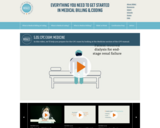
In this video, we'll help you prepare for the CPC exam by looking at the Medicine section of the CPT manual.
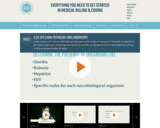
In this course, we'll cover the Pathology and Laboratory section of the CPT manual. We'll provide a breakdown of the various subsections of Pathology and Laboratory, and take you through some of its more important sections to help you prepare for the CPC exam.

In this video, we'll discuss practice management as it relates to the CPC exam.
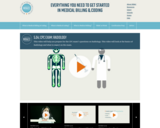
This video will help you prepare for the CPC exam's questions on Radiology. This video will look at the basics of Radiology and what to expect on the exam.
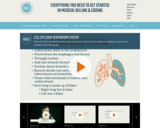
Here you'll find a breakdown of the respiratory system and a look at the types of respiratory surgery codes available in the CPT manual.
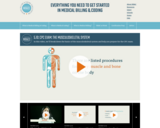
In this video, we'll break down the basics of the musculoskeletal system and help you prepare for the CPC exam. Since
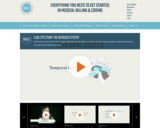
On the CPC exam, there will be approximately ten questions, in total, on the nervous system, endocrine system, eye and ocular adnexa, and ear.
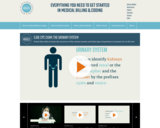
Watch this video to learn the structure of the urinary system and what type of questions to prepare for on the test.
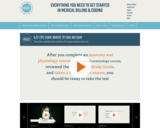
This video explains how to find a CPC exam location near you.
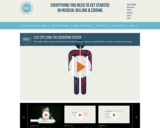
This video will provide a brief overview of the endocrine system, along with tips on what to expect in the exam.
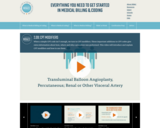
When a simple CPT code isn't enough, we turn to CPT modifiers. These important additions to CPT codes give extra information about how, where and why a procedure was performed. This video will introduce and explain CPT modifiers and how to use them.
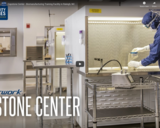
Capstone Center in Raleigh is BioNetwork's premiere worker training facility. Fundamental scientific understanding meets hands-on application. Our industry-experienced instructors lead courses in bioprocessing, quality control, compliance, cGMP, analytical chemistry, and microbiology.
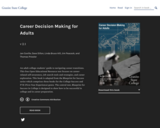
An adult college students' guide to navigating career transitions. This free Open Educational Resource text focuses on career-related self-awareness, job search tools and strategies, and career exploration. This book is adapted from the Blueprint for Success series which comprises three books for the College Success and FYE (First-Year Experience) genre. The central text, Blueprint for Success in College is designed to show how to be successful in college and in career preparation.
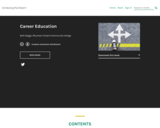
Students who do not know what careers they would like to pursue will be asked to review supplementary career resources such as the Occupational Handbook or the Virginia Wizard or the local employment office or any authoritative resources which could give them information about career pathways. Students will choose at least two occupations that they would be interested in pursuing. For each of the two occupations of interest, all students will review the level of education required, salary information, hiring outlook, and other information regarding the career fields and write a paper including this information comparing and contrasting the two career fields of interest.
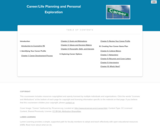
Counseling 116: Career/Life Planning and Personal Exploration is designed to cover theories and concepts of values, interests, skills and personality as applied to the career/life planning process and its application to labor market trends. Short/long term career/life plans will be developed. Students will develop an awareness of diversity and its relationship to psychological, sociological and physiological forces within the workplace.
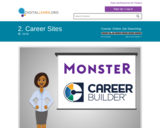
In this class, get an overview of looking for a job online. We cover online classified sites, job search sites, company sites, and staying safe from scams.
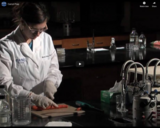
The "Experiments in Biotechnology" video series is a production of NCCCS BioNetwork in partnership with Haywood and Western Piedmont Community Colleges and features demonstrations of 8 laboratory experiments.
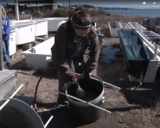
Aquaculture is defined as the farming and husbandry of aquatic organisms. In practice aquaculture or mariculture (saltwater aquaculture) involves commercially growing seafood for consumers. It also involves the sciences of natural resource management and enhancement, collection methods, aquarium technology, facility construction and maintenance, and biotechnology production from marine organisms. Carteret Community College offers the Aquaculture Technology program and emphasizes applied marine sciences and mariculture. The focus of the program is on salt-water species like oysters, clams, soft-shell crabs, and marine finfish like flounder, drum and bait minnows but some freshwater aquaculture species are also covered. Students learn hands-on skills through the Aquaculture Practicum series. Skills such as water quality testing, system construction and maintenance, species collection methods and treatments, feeding and breeding technology are part of the practicums. Students also work with program partners in the industry in practicums and in the cooperative work experience course. Partners include university and government marine sciences laboratories, fishery management agencies, public aquariums, environmental non-governmental organizations, as well as commercial aquatic businesses. The CCC facility is a 5,000 square ft. state-of-the-art showcase for applied marine science, aquatic hatchery and marine biotechnology work. Graduates of the program may find employment on private farms and government hatcheries or at public aquariums. They may also start new businesses in fish, shellfish, or aquatic plant farming, aquatic management services, home/office aquarium or water gardening services. Graduates with the AAS in Aquaculture Technology from CCC can pursue Bachelor's degrees through 2+2 articulations with UNCW and ECU.